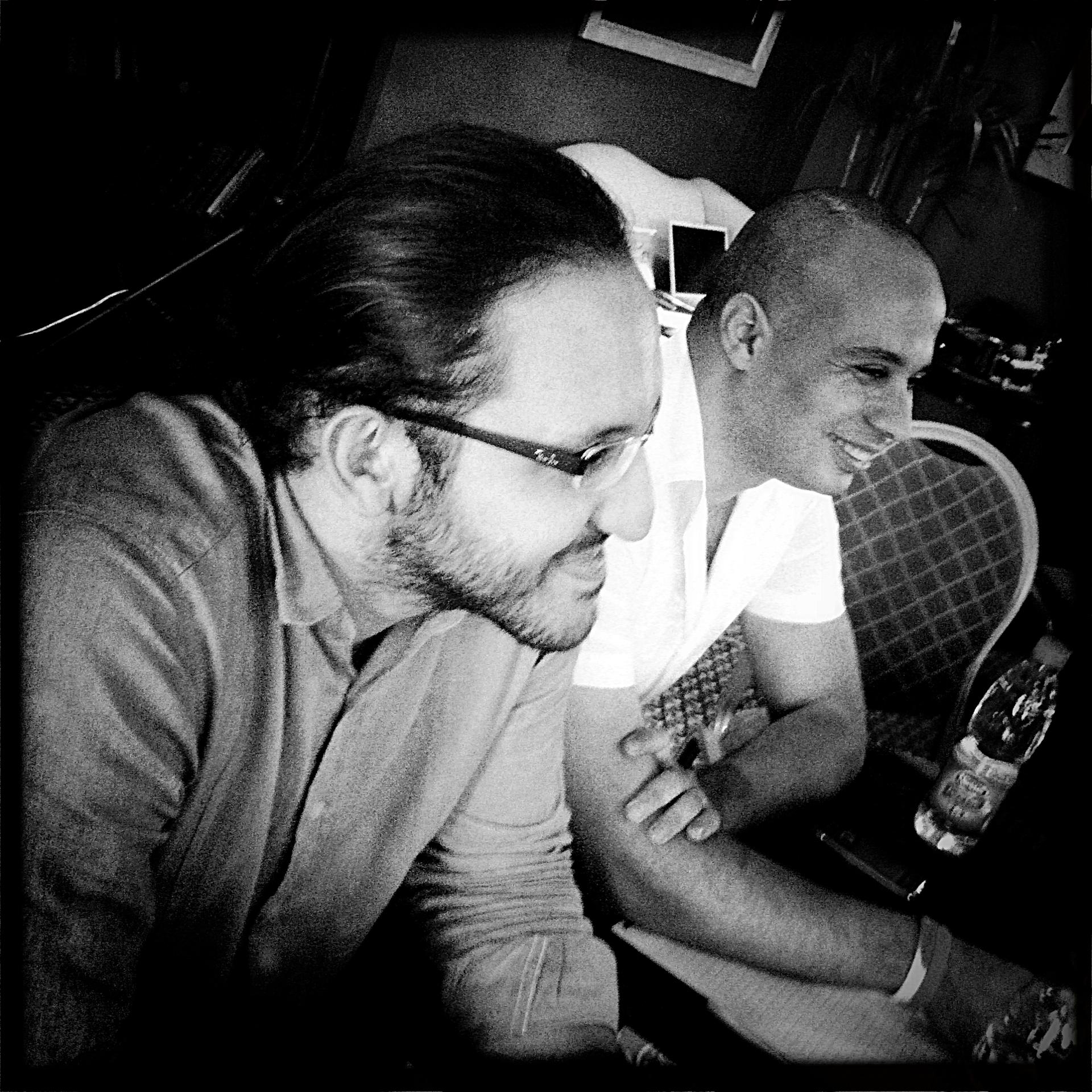January 25: (Not) a Facebook revolution
Egyptian social networkersand leading activists in the January Revolution that overthrew Hosni Mubarak Ramy Raoof (L) and Ahmed Maher (R) at the Open Hands Initiative GlobalPost Seminar on ‘Covering a Revolution’ in Cairo, October 2011.
Minutes before April 6th movement founder Ahmed Maher joined a panel to discuss the role internet social networking played — and did not play — in the Egyptian people’s uprising, he stood on the 20th floor balcony of the Cairo Marriott looking serene and hopeful.
“Now, we are preparing for part two of the revolution,” he said with a smile.
Maher, human rights defender Ramy Raoof, and activist Gigi Ibrahim, all agreed “January 25th was not a Facebook revolution,” addressing early-career American and local journalists at the opening seminar of “Covering a Revolution,” co-organized by GlobalPost and the Open Hands Initiative on Thursday.
Three of the revolution’s stars said it would not have happened if not for the people on the ground. They concurred that offline action has stimulated a wealth of online content, and not vice versa. Media aside, the activists believe that the battle for change is far from over.
“Real change will take time,” said Maher. “Mubarak leaving was the easy step.”
In January of this year, Maher said he contacted young activists including Wael Ghonim and Israa Abdel Fattah, and started to deliberate the annual January 25 event — a date now famous as the birth of the revolution.
“We wanted to do something new,” Maher reminisced. In a few long weeks, that “something new” developed into a storyline that changed the fate of Maher’s country forever.
Maher said he is not an online activist. “I like to be on the street,” he said.
But he does not deny that social media tools such as Facebook and Twitter were” useful in organizing movements and spreading ideas in Egypt,” where traditional media is a mouthpiece of the regime and opposing views are stifled.
Political activist, freelance journalist and Twitter personality Gigi Ibrahim said that in dictatorships, “alternative media is crucial in agitating the status quo.” She added that digital technology has created a potential reporter in every citizen with access to it. “Nothing can hide anymore.”
Ramy Raoof praised the online platform as the “only free space to share untainted views.” He believes the success of the online activist community to drum up action offline peaked at three different incidents: The general strike on April 6th of 2008; the uproar resulting from the murder of Khaled Said by police brutality in 2010; and the 18-day uprising that led to the ouster of Mubarak.
Still, the panel downplayed the power of social networks, limiting their role to coverage of unfolding events. Raoof said that terms like “online revolution” and “Facebook revolution” may be “sexy expressions,” but that they are neither accurate nor concrete.
The true instigators for previous movements in Egypt, according to Raoof have been unemployment, torture, and corruption. January 25th had the same underlying narrative, with a radically different outcome. “This time, for some reason, it became a revolution,” Raoof said, finding it hard to fight the smile.
After the events in Tunisia and the successful toppling of Ben Ali, people regained their belief in the power of the streets, Ibrahim said. Egyptians risked their lives, Ibrahim said, because they were determined to live free or not at all.
“Everybody suddenly believed in change again,” Ibrahim said. Today, Ahmed Maher’s April 6th Movement has one goal, and that is continuing that change.
The story you just read is accessible and free to all because thousands of listeners and readers contribute to our nonprofit newsroom. We go deep to bring you the human-centered international reporting that you know you can trust. To do this work and to do it well, we rely on the support of our listeners. If you appreciated our coverage this year, if there was a story that made you pause or a song that moved you, would you consider making a gift to sustain our work through 2024 and beyond?
